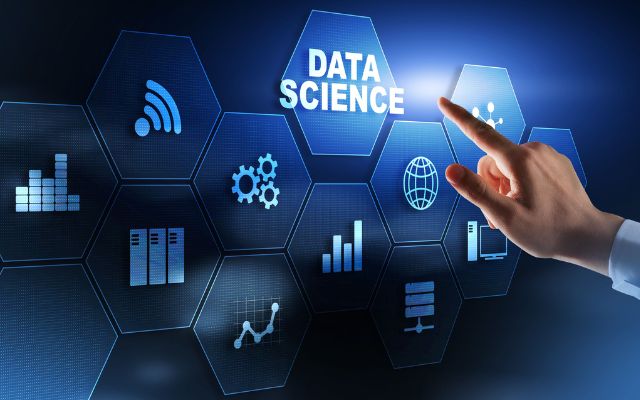How to Build a Career in Data Science: A Guide for Aspiring Data Scientists

Data Science is a growing field with high demand for professionals who have the necessary skills to analyze and interpret data. If you are interested in building a career in Data Science, here’s a guide that will help you get started.
- Learn the basics Before you can become a Data Scientist, you need to have a strong foundation in mathematics, statistics, and computer science. Take courses in calculus, linear algebra, probability, and statistics to build your mathematical skills. Learn programming languages such as Python, R, SQL, and Hadoop to gain expertise in data handling, processing, and analysis.
- Get hands-on experience The best way to gain practical experience is to work on projects related to Data Science. You can start with small projects, such as analyzing data from a public dataset, and gradually move on to more complex projects. You can also participate in hackathons or contribute to open-source projects to gain experience and learn from other professionals.
- Build a portfolio To showcase your skills and experience to potential employers, build a portfolio that demonstrates your Data Science projects and your problem-solving skills. Make sure your portfolio is well-organized, easy to navigate, and shows your ability to work with real-world data.
- Network with other professionals Join online communities, such as LinkedIn groups, Meetup groups, or Data Science forums, to network with other professionals in the field. Attend conferences, workshops, and webinars to meet experts and learn about the latest trends and technologies in Data Science.
- Get certified To demonstrate your expertise and commitment to the field, consider getting certified in Data Science. Many organizations offer certification programs, such as IBM, Microsoft, and SAS. These certifications can help you stand out from other candidates and demonstrate your knowledge and skills to potential employers.
Is Data Science a Good Career?
Yes, data science is a rapidly growing and lucrative career field that offers many opportunities for those with the necessary skills and expertise. The demand for data scientists is high, and this trend is expected to continue as more and more businesses and industries rely on data-driven insights to make informed decisions. However, it is important to note that pursuing a career in data science requires a strong foundation in mathematics, statistics, computer science, and programming, as well as a willingness to continuously learn and adapt to new technologies and trends.
What Do Data Scientists Do?
Data scientists are professionals who analyze and interpret complex data sets to derive meaningful insights and help organizations make data-driven decisions. They use a combination of programming, statistical analysis, machine learning, and data visualization techniques to:
- Collect and clean data from various sources
- Analyze and interpret data using statistical methods and machine learning algorithms
- Develop predictive models to identify trends and patterns in data
- Communicate findings and recommendations to stakeholders in a clear and concise manner
- Continuously evaluate and improve the accuracy and effectiveness of models over time.
Data scientists work in a variety of industries, such as healthcare, finance, e-commerce, and marketing, among others.
How Difficult is Data Science?
Data science can be a challenging field, as it requires a combination of technical and analytical skills. Data scientists must be proficient in programming languages such as Python or R, as well as statistical analysis and machine learning techniques. They must also have strong communication and problem-solving skills, as they often work with complex and large-scale data sets and need to be able to explain their findings to non-technical stakeholders.
Becoming a data scientist typically requires a strong foundation in mathematics, statistics, and computer science, as well as practical experience with data analysis and machine learning. While it can be challenging to acquire these skills, there are many resources available, such as online courses, boot camps, and degree programs, to help individuals develop the necessary knowledge and expertise. With persistence and dedication, it is possible to build a successful career in data science.
What Qualifications Will You Need?
To become a data scientist, there is no one-size-fits-all set of qualifications. However, most data scientists have a combination of education, experience, and technical skills. Here are some of the typical qualifications you may need:
- Education: A bachelor’s degree in a quantitative field such as computer science, statistics, mathematics, or engineering is a good starting point. Many data scientists also hold advanced degrees such as a Master’s or PhD in a related field.
- Technical Skills: You’ll need to have a solid understanding of programming languages such as Python, R, SQL, and other tools used for data analysis and modeling. You’ll also need to be familiar with statistical methods, data visualization, and machine learning techniques.
- Experience: Practical experience with data analysis, machine learning, and working with real-world data sets is highly valuable. Many aspiring data scientists gain experience through internships, co-op programs, or personal projects.
- Soft Skills: Data scientists need to be able to communicate complex technical concepts to non-technical stakeholders. You’ll also need strong problem-solving skills, critical thinking, and attention to detail.
In summary, while there is no one specific set of qualifications needed to become a data scientist, a combination of education, technical skills, and practical experience are essential.
- “Protecting Your Information: Lessons Learned from [Flagstar Bank ]’s Data Breach”
- Significant Perks of Data Science Course in India
- WhatsApp data of 500 million users available for purchase, says report
Conclusion
Building a career in Data Science takes time and effort, but with the right skills and experience, you can succeed in this rapidly growing field. Start by learning the basics, gaining hands-on experience, building a portfolio, networking with other professionals, and getting certified. With persistence and hard work, you can become a successful Data Scientist and make a significant contribution to the field.






